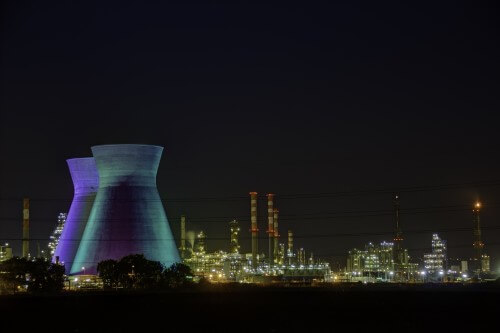According to the calculations of a committee of the ministry that prepared the plan, its benefit to the Israeli economy is NIS 125 billion

The State of Israel must adapt to the OECD countries to which it belongs, and reduce approximately 30% of the expected greenhouse gas emissions in 2030: between 30-34 million tons of greenhouse gases by 2030. Adopting this target will lead to an emissions level of between 6.9-7.4 million a ton per capita, similar to the industrialized countries of the world - this is according to the recommendation of the Ministry of Environmental Protection to formulate a national goal for reducing greenhouse gas emissions. The conclusions were presented at the end of an innovation and sustainability conference held by the ministry, ahead of the climate conference in Paris, with the participation of the Minister of Environmental Protection, Avi Gabai and the German Minister of Environmental Protection, Barbara Hendricks. The ministry intends to submit the recommendations for a government decision by September and then submit them to the UN as the official commitment of the State of Israel.
The ministry's recommendation was formulated on the basis of the work of the inter-ministerial committee, which comprehensively examined the potential for reducing Israel's energy consumption and greenhouse gas emissions for 2030 in the various sectors such as electricity production, industry, transportation, commercial and residential buildings, waste and agriculture. In recent months, the committee conducted a technical and economic analysis of the potential for reducing energy consumption and greenhouse gas emissions together with the relevant government ministries and various authorities and formulated a realistic economic scenario for Israel for the year 2030 that includes a target for reducing greenhouse gases and a strategy for realizing the target.
The main steps to be taken according to the committee
- Energy efficiency: the work shows the economy and the reduction potential in the commercial, public and domestic sectors, through changing the air conditioning and lighting systems. The work also shows the potential for significant savings in the industry through changing the concept of energy management and local production of electricity and heat (cogeneration). In total, it is possible to reduce the electricity consumption in Israel by an average of 18%, which will lead to savings of billions and may lead to the fact that there will be no need to build a new power plant.
- Electricity production: The work emphasizes the significant reductions and the economic viability resulting from a transition to the use of natural gas as opposed to the use of polluting fuels such as coal and diesel, in the production of electricity. Prioritizing gas instead of coal will lead to a significant reduction in greenhouse gas emissions and pollution.
- Renewable energies: increasing the ratio of renewable energies in the future electricity production mix to about 22% in 2030, will lead to a reduction of about 20% of the total required reduction of greenhouse gases, will increase long-term energy security and the variety of electricity production sources.
- Public transportation: The implementation of the medium and long-term public transportation development plan until 2030 will lead to the transfer of 25% of private transportation to mass transportation systems, based on buses, heavy trains, and light trains. Beyond the use of compressed gas in heavy diesel vehicles and especially in trucks and buses, it was found to be economical and has many benefits for reducing the levels of air pollution and congestion in city centers.
The main policy measures that must be taken in order to reach the goal include prioritizing natural gas over coal in electricity production, establishing a national fund for energy efficiency, which will enable financing and support for energy efficiency, creating an economic incentive for electricity producers to invest in electricity savings and other measures that include the actual adoption of a construction standard Green in new construction in all the authorities in the country and the development of the public transportation system.
The committee's recommendations were presented at the innovation and sustainability conference in preparation for the climate committee in Paris held today by the Ministry of Environmental Protection and attended by, among others, the Director General of the Ministry of Environmental Protection David Leffler, Kayo Koch-Wieser - Vice Chairman of the Deutsche Bank Group, Haldor Thorgersson, Director of the Secretariat The United Nations Climate Change Convention, Simon Buckle Head of the Climate Change Cluster at the Environmental Quality Administration in the OECD, Prof. Eugene Kendall Chairman of the National Economic Council, Kristof Frien Van Shepzard Director of Public Affairs in Central Europe of the global Knauf Insulation Company, CEO "I have companies from the fields of energy and industry, representatives of green organizations and more.
